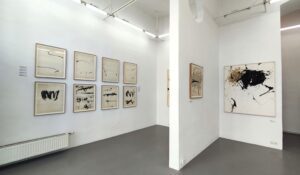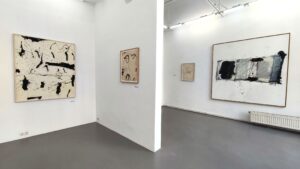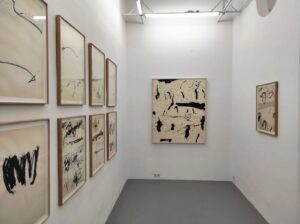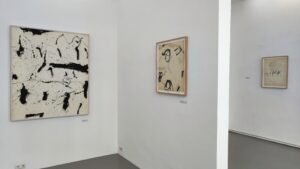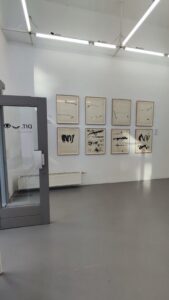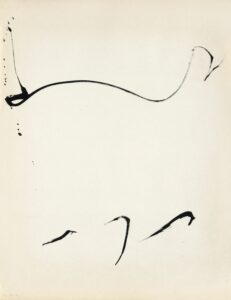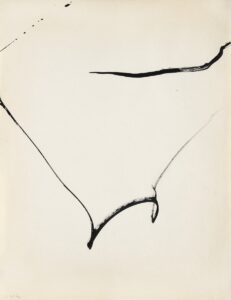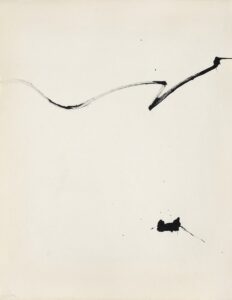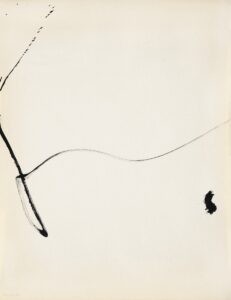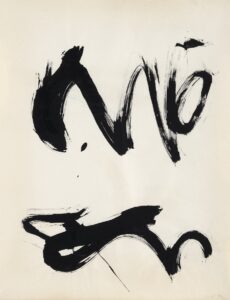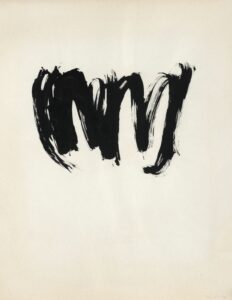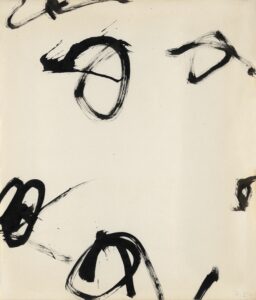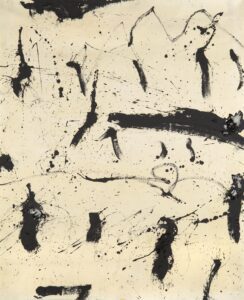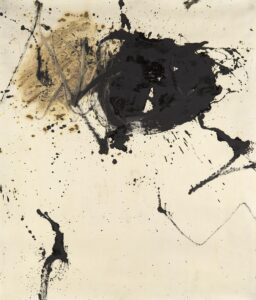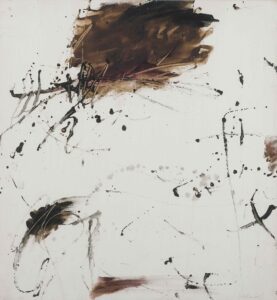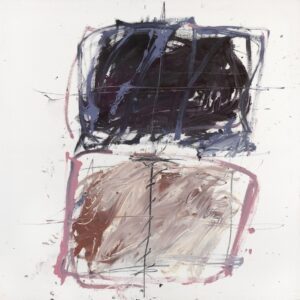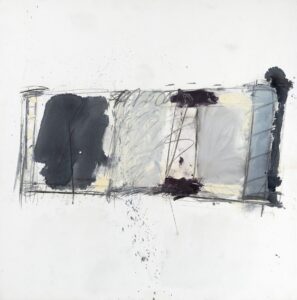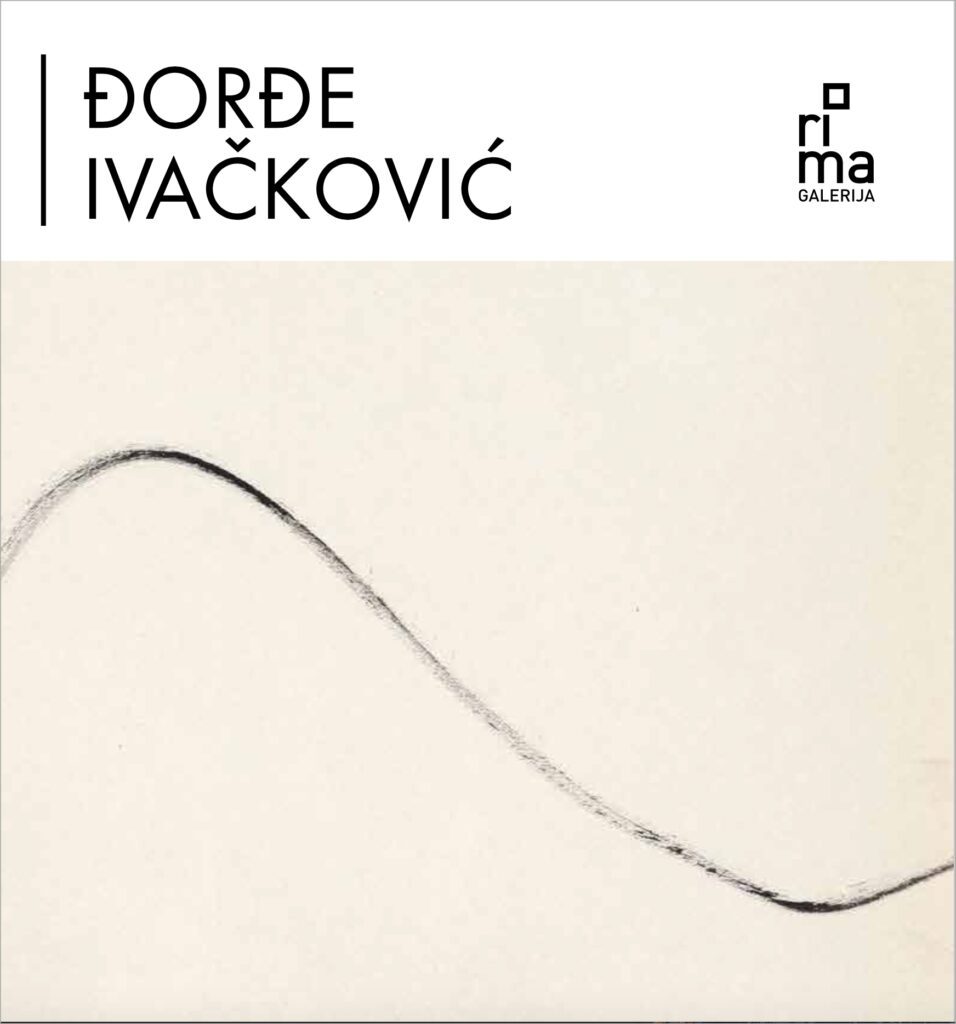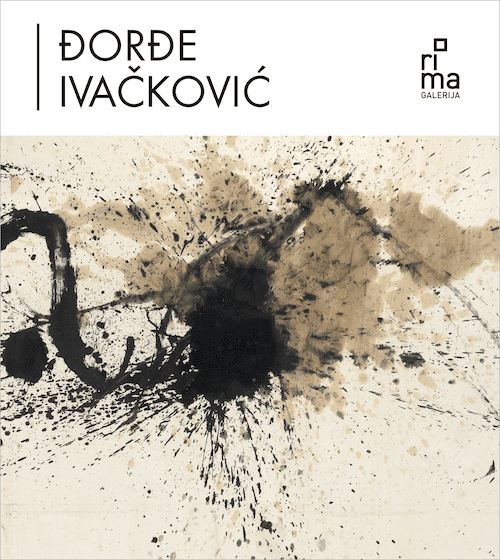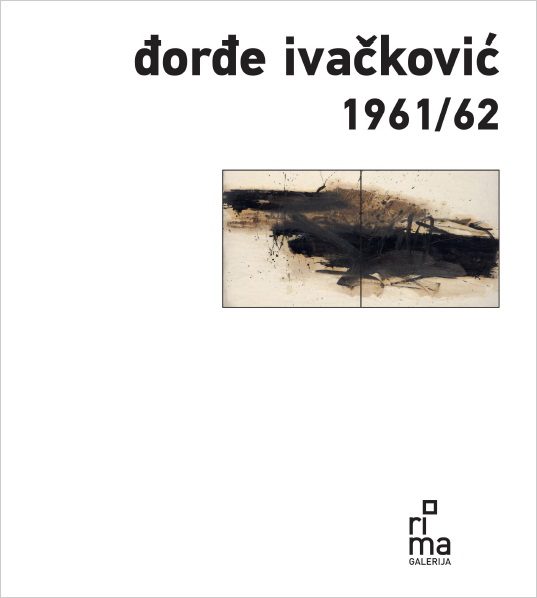7-17 September 2022
DIT. Vienna
>>> THE SHOW / PAINTINGS FROM THE 1960s
The 1960s were the first decade of Ivackovic’s life in Paris. During those years he held two solo exhibitions (1963, 1967), participated in group exhibitions among which are several dedicated to art inspired by jazz, as well as the Paris Biennial (in the selection of Young French Critics) in 1965, which brought him his first major international recognition and success. During the Phill Woods’ French tour Ivackovic was part of several multimedial evenings in 1967, painting his large formats “live” on the stage, while jazz band performed.
Ivackovic’s works from the 1960s strongly relay on the expressive potential of his abstraction. Among all the Ivackovic’s paintings they are the closest to revealing the mindset of a jazz musician in the world of visual arts. Particularly those from his first years in Paris (1962-1965), made him recognizable on Paris art scene as a painter with a deep jazz influence in both his creative approach to painting and the creative process itself.
Although based on the accumulated knowledge of relations among elements of a painting, achieved through many sketches and studies, Ivackovic’s process of creating a new painting liberates the jazz musician within him:
I accomplish every painting in continuity, in a single breath. I feel when a painting is finished and every time when I try to add or change something after a certain time, it would lose its real meaning, its identity, its being, because for me a painting is only a reflection of a certain state, of traces of excitement, evidence of a creative play in a given course of time, in other words, unique.
